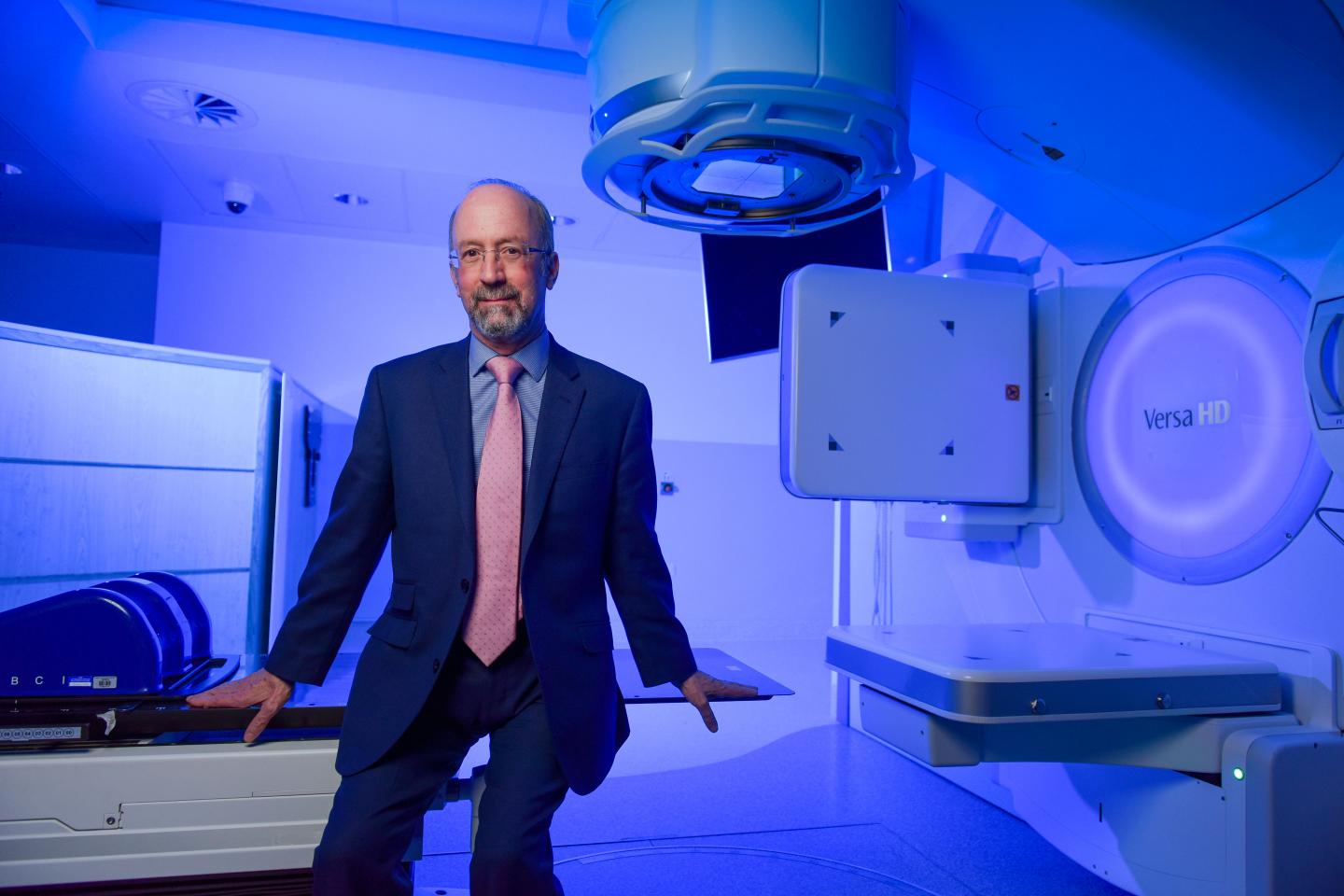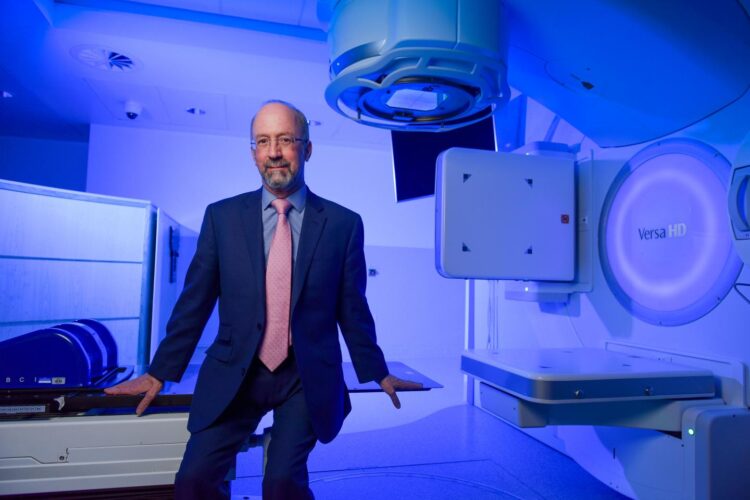
Credit: University of Leeds
An international panel of cancer experts has recommended a one-week course of radiotherapy and delaying surgery as the best way to treat patients with bowel cancer during the COVID-19 pandemic.
The short course of treatment involves higher-intensity radiation rather than five weeks of radiotherapy coupled with chemotherapy. Surgery, which normally happens one to two weeks after radiotherapy, can be safely delayed by up to 12 weeks, say the expert panel.
This approach, based on the latest research evidence, will maintain the best chance of successfully treating the disease while at the same time reducing the side effects of treatment and the risks of COVID-19 infection.
People with bowel cancer are more susceptible to severe complications from COVID-19 because their immune system is weakened. Shorter-course radiotherapy avoids the need for chemotherapy, which further suppresses the immune system. It also means significantly fewer hospital appointments, allowing patients to maintain social distancing rules.
David Sebag-Montefiore, Professor of Clinical Oncology at the University of Leeds and Honorary Clinical Oncologist with the Leeds Teaching Hospitals NHS Trust, who led the expert panel, said: “The COVID-19 pandemic is a global emergency and we needed to work very quickly to identify changes that would benefit patients. Our recommendations were published 20 days after our first meeting.
“This process normally takes many months, if not years.”
Writing in the journal Radiotherapy and Oncology, the panel, made up of cancer experts from across Europe, say it is also possible that hospitals may struggle to offer the current treatment approaches as COVID-19 impacts on hospital staffing levels.
The expert panel’s recommendations can be found here: https://www.thegreenjournal.com/article/S0167-8140(20)30173-0/pdf
The 15- strong panel comprised researchers who led the defining studies. Their research shows that surgery can be safely delayed by 12 weeks. The chances of successful treatment are maintained and post-operative side effects are reduced. This allows surgery to be scheduled after the peak of the pandemic.
The recommendation to use shorter-course radiotherapy follows a major study, funded by the UK Medical Research Council and led by Professor Sebag-Montefiore, which demonstrated the benefit of the one-week course of radiotherapy.
Professor Sebag-Montefiore added: “Our guidelines will result in a very substantial change in treatment across the globe. During the COVID-19 pandemic, our patients will benefit from the use of an effective, shorter and safer radiotherapy treatment.”
###
Notes to Editors
For further details or for request to talk to Professor Sebag-Montefiore, please contact David Lewis in the press office: [email protected]
The paper demonstrating the benefits of shorter-course radiotherapy can be found by following the link: Preoperative radiotherapy versus selective postoperative chemoradiotherapy in patients with rectal cancer (MRC CR07 and NCIC-CTG C016): a multicentre, randomised trial https://doi.org/10.1016/S0140-6736(09)60484-0
Professor Sebag-Montefiore is Clinical Director of the Leeds Cancer Research UK Centre of Excellence for Radiotherapy Research, Chair of the National Cancer Research Institute Clinical and Translational Radiotherapy Group (CTRad) and Clinical Director of the Cancer Research UK Leeds Clinical Trial Unit.
Images of Professor Sebag-Montefiore can be downloaded from our Google Drive account by following this link:
https:/
The University of Leeds
The University of Leeds is one of the largest higher education institutions in the UK, with more than 38,000 students from more than 150 different countries, and a member of the Russell Group of research-intensive universities. The University plays a significant role in the Turing, Rosalind Franklin and Royce Institutes.
We are a top ten university for research and impact power in the UK, according to the 2014 Research Excellence Framework, and are in the top 100 of the QS World University Rankings 2020. The University was awarded a Gold rating by the Government’s Teaching Excellence Framework in 2017, recognising its ‘consistently outstanding’ teaching and learning provision. Twenty-six of our academics have been awarded National Teaching Fellowships – more than any other institution in England, Northern Ireland and Wales – reflecting the excellence of our teaching. http://www.
Unsubscribe from this list
Media Contact
David Lewis
[email protected]





